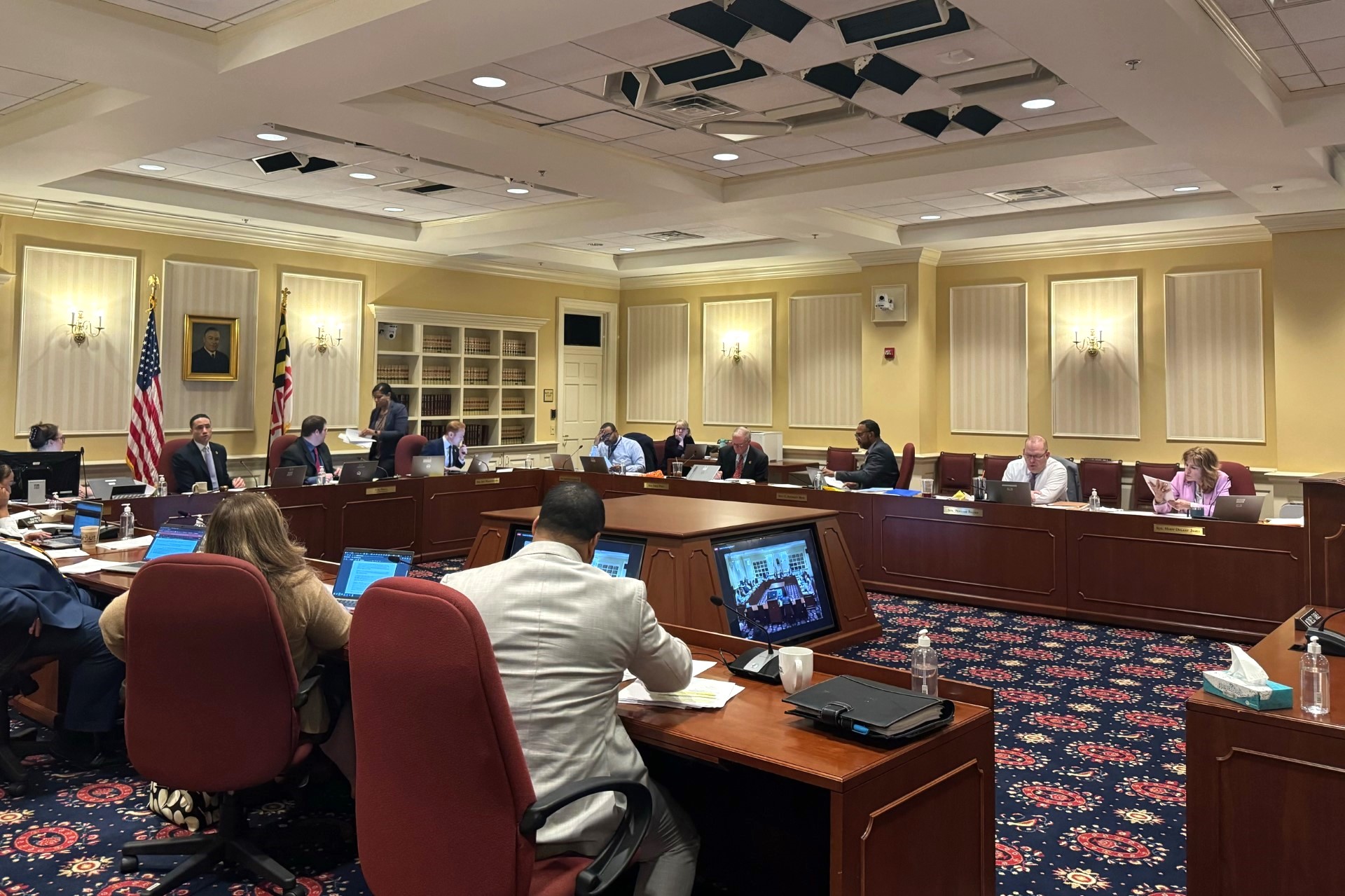
Two Maryland General Assembly committees dissected bills on Tuesday focused on reforming state laws for juvenile offenders, one of the hot topics of this year’s 90-day session.
Legislative leaders want to alter what offenses constitute juvenile crimes, the age range of those who can be kept in custody for certain offenses, and what kind of rehabilitative services youthful offenders are eligible for. It’s a major undertaking, and both legislative chambers are starting to stake out their top priorities.
The Senate Judicial Proceedings and House Judiciary committees marked up their bills Tuesday, adding separate amendments to the legislation. Floor debates are expected Wednesday in the House and later this week in the Senate.
The Judicial Proceedings Committee was first to meet Tuesday, voting 9-2 to advance Senate Bill 744 to the full body. But committee members added an amendment that stretches for a few pages.
As summarized by the committee’s chair, Sen. William C. Smith Jr. (D-Montgomery), part of the amendment removes several criminal offenses by children ages 10 to 12 from the jurisdiction of the state Department of Juvenile Services (DJS).
For instance, the committee deleted a “false statement on an application” for a gun as one of the crimes eligible for state supervision because a child isn’t old enough to apply for a firearm permit.
Senators also removed an offense for a crime against an animal from the bill.
The committee did, however, keep in the bill third-degree sex offenses and various firearm offenses such as possession of a ghost gun and using a firearm in the commission of a crime.
The Senate version and House Bill 814 would require a DJS intake officer to make an inquiry within 15 business days to decide whether the juvenile court has jurisdiction over a youth offender’s case and whether judicial action “is in the best interests of the public or the child.” The current law is 25 days.
A Senate amendment added Tuesday says that if a law enforcement officer requests an intake officer as a condition for a child to be in pretrial detention and the intake officer doesn’t authorize it, then a DJS employee would have two days to make that decision.
“It expedites the process,” Smith said.
Sen. Jill P. Carter (D-Baltimore) and Sen. Charles E. Sydnor III (D-Baltimore County) voted against advancing the bill, in part, they said, because it would allow juvenile services to send children ages 10 to 12 to juvenile court if arrested for various offenses.
“I’m still having trouble putting 10-, 11- and 12-year-olds in the jurisdiction of DJS,” Sydnor said. “I just need a little more time to figure that one piece out.”
Meanwhile, the committee accepted an amendment from Sen. C. Anthony Muse (D-Prince George’s) that if a youth under DJS supervision records four unexcused absences from a particular rehabilitation program, then the court would be notified. No one could say what would happen when a court is notified.
The committee also placed the crime of motor vehicle theft within the Children in Need of Supervision petition, also known as CINS, designating that a young offender is in need of guidance, treatment, or rehabilitation. If a child is arrested for that particular offense, then a law enforcement officer would be required to fill out a CINS form so that the youth and the youth’s family can qualify for a variety of services.
The language mirrors part of Senate Bill 2, which Carter sponsored. The bill is named after NyKayla Strawder, a 15-year-old girl shot in August 2022 by a 9-year-old boy. The shooting took place in Carter’s district.
The measure would require a police officer to file a complaint to the juvenile services department if a child under 13 commits a crime “that results in the death of a victim.”
In addition, it would make it mandatory for an intake officer with the department to file a CINS petition that enables not only law enforcement personnel, but social service representatives, educators and residents to fill out a form.
Those referrals, which are managed by the department, have increased, but referrals are not being made in some jurisdictions.
The committee voted unanimously Tuesday to advance Carter’s bill to the full Senate. All committee members except Sen. William G. Folden (R-Frederick) chose to sign on as co-sponsor.
‘Not entirely clear’
After the House Judiciary Committee held bill hearings for about seven hours, the committee on Tuesday night approved several amendments to its version of the juvenile justice measure.
Instead of the bill taking effect on Oct. 1, the committee approved by a 17-5 vote a proposal to push the bill’s effective date another three months to Jan. 1, 2025.
Del. Luke Clippinger (D-Baltimore), chair of the committee, said it would give law enforcement, DJS and other officials additional time to incorporate necessary changes.
The House committee accepted an amendment that the department must provide a copy of its treatment plans for youths to the Commission on Juvenile Justice Reform and Emerging and Best Practices. The commission would complete several tasks such as reviewing the department’s education and diversionary programs, researching evidence-based programs and reviewing fatalities that involve children under the supervision of DJS.
Similar to what the Senate committee did earlier Tuesday, the House panel removed firearm-related offenses such as a child filling a false firearm application and straw purchases. Animal cruelty remains in the House version.
The committee also added a provision for youths to enter a mandatory diversion program if a first-time arrest involves a car theft or certain firearm offenses.
“Quite frankly, we avoid a CINS process that is not entirely clear,” Clippinger said. “While at the same time, making sure that the kids don’t go into the DJS system without going through a diversionary program first.”




 Creative Commons Attribution
Creative Commons Attribution